Napoleon Rare Handwritten Letter in English to Emmanuel, comte de Las Cases (One of Three Known)
Two ways to bid:
- Leave a max absentee bid and the platform will bid on your behalf up to your maximum bid during the live auction.
- Bid live during the auction and your bids will be submitted real-time to the auctioneer.
Bid Increments
| Price | Bid Increment |
|---|---|
| $0 | $5 |
| $50 | $10 |
| $200 | $25 |
| $500 | $50 |
About Auction
Dec 6, 2023
Boasting 500+ rare and remarkable lots, RR Auction's December Fine Autographs and Artifacts sale features special sections dedicated to World War II and Science & Technology. RR Auction support@rrauction.com
- Lot Description
Rare unsigned handwritten letter in English by Napoleon Bonaparte, one page, 6.5 x 8, March 6, 1816. Handwritten letter to French atlas-maker and author Emmanuel, comte de Las Cases, who accompanied Napoleon on his exile to Saint Helena, acting as his secretary there and tutoring him in English; Las Cases is famed for an admiring book about Napoleon, Le Mémorial de Sainte-Hélène ('The Memorial of Saint Helena'). Napoleon pens a rare, playful letter in English, headed, "Sir Count Lascases." Anonymously poking fun at Las Cases' celebrated atlas, Napoleon writes, in full (spelling and grammar retained): "j write you this letter for say to you that you had done a very good book. It is not however that is not somme fautes but you schal may corect them in the next edition: then schal you may sell you work five pound ever exemplary. upon that j pray god that he have you in his holy and worthy guard." Napoleon writes from "Longwood," the mansion on the island of Saint Helena where he resided while in exile. Addressed on the integral leaf in Napoleon's hand: "Counte Lascases, Longwood, very urgent." The letter is tipped into a bound folio, 10 x 13.75, with quarter-leather spine and marbled boards; also inside the volume are two letters by a descendant of Las Cases, and a photograph of a letter by Napoleon. In fine condition.
Accompanied by a hardcover edition of Le Mémorial de Sainte-Hélène [Tome Premier] by Le Comte de Las Cases, published in Paris by Magen et Comon. In it, Las Cases makes reference to the present letter in his entry for March 7th (translated): "A moment before dinner, I went, as usual, to the living room; the Emperor played a game of chess there with the Grand Marshal. The valet on duty at the drawing room door came to bring me a letter; it said on it: very urgent. Out of respect for the Emperor, I hid to try to read it; it was in English: it said that I had done a very beautiful work; that he was not, however, free from faults; that if I wanted to correct them in a new edition, there is no doubt that the work would be much better; and with that, we prayed to God to have me in his worthy and holy guard. Such a letter, so unexpected and somewhat out of place, it seemed to me, aroused my surprise, a little my anger; the red color came to my face; it was to the point that I had not given myself the time to consider writing it. As I looked through it, I recognized the hand, despite the unusual beauty of the writing, and I couldn't help but laugh a lot about it. But the Emperor, who saw me from the side, asked me from whom the letter that had been given to me was. I replied that it was a piece of writing that had left me with an initial feeling very different from the one it would leave me with. I said it so naturally, the mystification had been so complete, that he began to laugh until he cried. The letter was from him; the schoolboy had wanted to make fun of his master, and try his hand at his expense. I keep this letter carefully; the cheerfulness, the style and the circumstance make it more precious to me than any diploma that the Emperor could have given me at the time of his power."
This letter, along with two others—the only known English letters by Napoleon—were kept by Las Cases and later bound together in a single volume (the other two were excised and sold; one, dated March 9th, achieved over £150,000 at auction in 2021). This compelling example reveals Napoleon as a playful trickster and a quick study—in spite of his broken English, the meaning is clearly communicated. For further insight into Napoleon's relationship with Count Emmanuel de Las Cases and his study of the English language, see 'Napoleon's English Lessons' by Peter Hicks, in which this letter is transcribed. - Shipping Info
-
Bidder is liable for shipping and handling and providing accurate information as to shipping or delivery locations and arranging for such. RR Auction is unable to combine purchases from other auctions or affiliates into one package for shipping purposes. Lots won will be shipped in a commercially reasonable time after payment in good funds for the merchandise and the shipping fees are received or credit extended, except when third-party shipment occurs. Bidder agrees that service and handling charges related to shipping items which are not pre-paid may be charged to a credit card on file with RR Auction. Successful international Bidders shall provide written shipping instructions, including specified Customs declarations, to RR Auction for any lots to be delivered outside of the United States. NOTE: Declaration value shall be the item’(s) hammer price and RR Auction shall use the correct harmonized code for the lot. Domestic Bidders on lots designated for third-party shipment must designate the common carrier, accept risk of loss, and prepay shipping costs.
-
- Buyer's Premium



 EUR
EUR CAD
CAD AUD
AUD GBP
GBP MXN
MXN HKD
HKD CNY
CNY MYR
MYR SEK
SEK SGD
SGD CHF
CHF THB
THB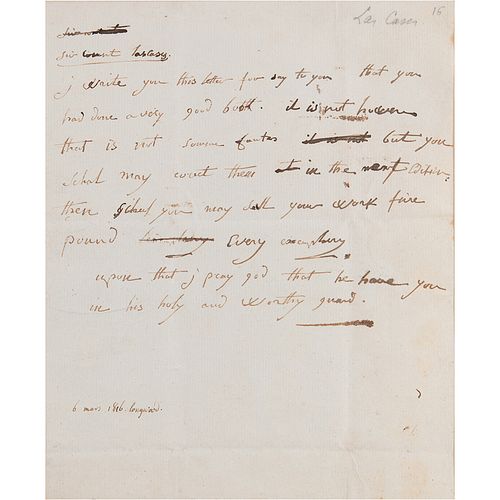

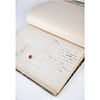
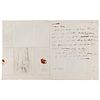
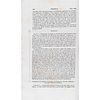
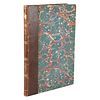
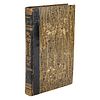

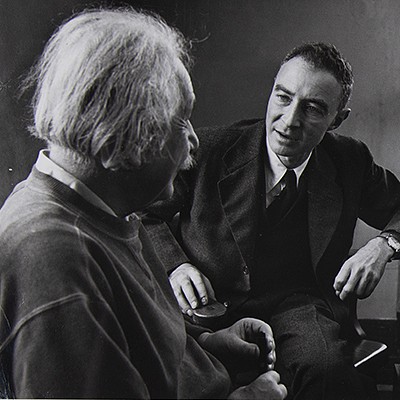
![[ABOLITION] Rare 1804 Anti-Slavery Pamphlet, One of Earliest Known](https://s1.img.bidsquare.com/item/m/2969/29696581.jpeg?t=1TL9FO)
![[AMBROTYPE] Children and Rabbit](https://s1.img.bidsquare.com/item/m/2903/29032056.jpeg?t=1TsHTb)
![[EARLY PHOTOGRAPHY] Photographer & Studio CDVs](https://s1.img.bidsquare.com/item/m/2900/29009609.jpeg?t=1TrhUL)
![[CIVIL WAR] Paralyzed WIA Confederate Veteran and his Black Servant CDV](https://s1.img.bidsquare.com/item/m/2900/29009605.jpeg?t=1TrhPc)
![[AFRICAN AMERICANA] Boy Wearing Top Hat](https://s1.img.bidsquare.com/item/m/3009/30096223.jpeg?t=1TVkct)
![[LINCOLN] Candlestick Attributed to Abraham Lincoln](https://s1.img.bidsquare.com/item/m/2903/29032115.jpeg?t=1TsIgs)
![[NATIVE AMERICANS] Impressive Group of Ten (10) Native American Cabinet Cards](https://s1.img.bidsquare.com/item/m/2903/29032168.jpeg?t=1TsIyk)
![[SLAVE BADGE] 1814 Charleston "Servant" Slave Hire Badge](https://s1.img.bidsquare.com/item/m/2903/29032208.jpeg?t=1TsIUc)
